Security
The decision to travel is your responsibility. You are also responsible for your personal safety abroad. The Government of Canada takes the safety and security of Canadians abroad very seriously and provides credible and timely information in its Travel Advice. In the event of a crisis situation that requires evacuation, the Government of Canada’s policy is to provide safe transportation to the closest safe location. The Government of Canada will assist you in leaving a country or a region as a last resort, when all means of commercial or personal transportation have been exhausted. This service is provided on a cost-recovery basis. Onward travel is at your personal expense. Situations vary from one location to another, and there may be constraints on government resources that will limit the ability of the Government of Canada to provide assistance, particularly in countries or regions where the potential for violent conflict or political instability is high.
You are advised to exercise a high degree of caution in the country and to maintain security awareness at all times.
Border with Eritrea, including the Danakil Desert (see Advisory)
You are advised against all travel within 10 km of the Eritrean border in the Tigray and Afar regions. The border between Eritrea and Ethiopia is closed due to recurring military tensions and an unsettled border dispute, as demonstrated on March 15, 2012 when the Ethiopian military attacked targets in Eritrea. Adjacent areas are part of a special and heavily militarized security corridor where armed conflict could erupt. The security situation is particularly unpredictable in the northern regions of Tigray and Afar. Banditry and the threat of kidnapping are also a concern.
There is an ongoing threat of armed assaults and kidnappings against tourists and convoys in the Danakil Desert (northern Afar region). In January 2012, a group of foreign tourists was attacked by gunmen approximately 30 kilometers from the Ethiopian-Eritrean border, near the site of the Erta Ale Volcano. The attack resulted in the death of five people, with others injured and kidnapped. Avoid all travel to the Danakil Desert area, bounded by the Ethio-Eritrean border and the roads between the towns of Dessie and Adigrat and Dessie and the Galafi border crossing with Djibouti.
The presence of landmines poses a serious threat to visitors not travelling with a trusted tour company in the Danakil Desert. Explosions off the beaten path may cause injuries and death.
Somali region (see Advisory)
There is a high risk of kidnapping. Ongoing military operations against armed insurgent groups in the Somali region of Ethiopia and in the Ogaden and Hararge areas, toward the Somali border, have created an extremely volatile and dangerous security situation in which civilians have been killed and injured. Humanitarian missions, foreign aid workers as well as oil company workers and well operators in the Somali region have been subject to attacks and abductions by rebel groups including the Ogaden National Liberation Front (ONLF). The presence of landmines in this region poses an additional threat to safety.
Border with South Sudan and Sudan (see Advisory)
Tribal issues and sporadic incidents of violence have long affected part of the border area with South Sudan. In March 2012, a bus was ambushed by gunmen in the Gambella region, 22 km north of the city of Gambella on the road to Addis Ababa. Nineteen people were killed, and others were wounded or kidnapped. In April 2012, an agricultural site 90 km south of the city of Gambella was attacked by gunmen, killing five and injuring nine. Although foreigners do not appear to be targeted, tensions are high and concerns regarding ethnic clashes and road banditry remain. Tensions remain high in western Oromia as well. Avoid non-essential travel to the city of Gambella where the security situation is generally more stable.
Sporadic clashes have also occurred in the border areas with Sudan, particularly in thenorthwestern Amhara regions within 20km of the border with Sudan.
Border with Kenya (see Advisory)
Intertribal clashes, clan disputes, and banditry are common in this region and are fought by both Ethiopian and Kenyan security forces. This periodically raises tensions and cross-border violence has been reported. Armed groups hostile to the Government of Ethiopia operate in several areas near the border with Kenya.
Elections
The next Ethiopian national parliamentary elections are scheduled to take place on May 24, 2015 and the announcement of the results is expected on June 22, 2015. Maintain a high level of security awareness at all times and avoid political rallies, demonstrations and large gatherings of any kind. Avoid polling places on election day and be aware that authorities are likely to enforce specific prohibitions such as a ban on photography at polling stations. Follow the advice of local authorities and monitor local news reports for the latest information.
Terrorism
Regional terror groups, including those associated with al Qaeda and al-Shabaab, continue to threaten Western interests and other potential targets in Ethiopia. Al-Shabaab threatened retaliation for the death of its leader in Somalia on September 1, 2014.
The September 21, 2013 attack on an upscale Nairobi mall illustrates the threat of attacks on civilians in East Africa. On October 13, 2013, a bomb exploded in the Bole neighbourhood of Addis Ababa, killing two people. Maintain a high level of vigilance and personal security awareness and avoid large crowds.
In addition, domestic terrorist groups pose threats in certain regions, including in the Somali region, and parts of the Afar, Oromo, and Gambella regions. Be vigilant in crowded places and monitor local media.
Demonstrations
Politically and socially motivated demonstrations occur regularly and are often initiated with little or no advance notice. Some have escalated and turned violent in the past. They may occur more frequently in advance of the 2015 elections.
In late April 2014, demonstrations were reported at universities in Oromia region, as well as in the larger area of Addis Ababa. Clashes between demonstrators and security forces were reported. Exercise caution, avoid public gatherings and demonstrations and follow the advice of local authorities. It is strongly recommended that you refrain from writing on blogs or social media about subjects of a political nature, as it could lead to detention and/or arrest.
Crime
There is a moderate level of crime in Ethiopia, including in the capital. Muggings, armed assaults and theft from parked cars happen. Crimes of opportunity, such as pickpocketing and purse snatching, are prevalent in Addis Ababa. Pickpockets and thieves are active throughout the city, but particularly on Bole Road and in the Piazza, the Merkato, and other areas frequented by tourists and foreigners. Crime significantly increases after dark, and foreigners should avoid walking alone after sundown. Similarly, driving outside of Addis Ababa after sundown is not advised due to banditry.
Violent incidents
In the last few years, small bombings and explosions have occurred in Addis Ababa. Targets have included government buildings, public transit, and local restaurants and cafés. If travelling in the capital, you should monitor local developments and remain in regular contact with the Embassy of Canada in Addis Ababa. Be vigilant and aware of your surroundings at all times.
Road travel
Apart from major arteries, roads are generally in poor condition and often unpaved. However, in recent years, the road network has significantly improved, particularly in and around Addis Ababa. Excessive speed, local driving habits, pedestrians, roaming animals, and poorly maintained vehicles pose hazards. Outside of Addis Ababa, overland travel should be undertaken during daylight hours only and in convoys if possible. Periodic fuel shortages can disrupt road travel.
It is common for vehicles to be approached by beggars or vendors. It is illegal to give money to, or purchase something from, people who approach vehicles stopped in traffic. If caught, both the beggar/vendor and the vehicle operator may be fined. However, it is common for people, particularly children, to throw rocks at vehicles if their plea for money is ignored.
Beware of individuals who appear to be offering assistance by signaling that there is a problem with your vehicle, as bandits frequently use this tactic to lure drivers out of their vehicles.
Overland travel to the areas bordering Kenya, Somalia, Sudan and South Sudan is generally unsafe as banditry, including armed robbery and carjacking, is common. Landmines remain a hazard, particularly in the conflict zones of northern Ethiopia and near the areas bordering Sudan, South Sudan and Somalia.
Traffic accidents occur regularly in Addis Ababa and throughout Ethiopia. Drivers should use extra caution as traffic moves unpredictably and rules of the road are not respected. If an accident occurs, it is illegal to move your vehicle before a police officer arrives. However, if the driver or passenger feels the situation is unsafe, he or she should leave immediately and report the incident to the nearest police station. Drivers should always carry a first-aid kit as medical facilities are often undersupplied.
Air travel
Upon entering the Bole International Airport in Addis Ababa, all bags are scanned, without exception, including checked-in luggage. Suitcases may also be searched manually. Baggage tags must be retained, as they must be presented upon exit from the airport baggage claim area, without exception.
See Transportation Safety in order to verify if national airlines meet safety standards.
General safety information
Local authorities are increasingly checking identification papers. Carry your passport with you at all times, and cooperate with authorities should you be questioned.
Tourist facilities are limited outside Addis Ababa, and any travel outside the capital, especially in rural areas, should be carefully planned.
Power outages are frequent, particularly during the dry season (November to June). Not all buildings have generators, so outages can result in lack of street lighting, restaurants and supermarkets without adequate refrigeration, and gas stations unable to supply fuel. Carry flashlights and backup supplies.
Carry identification at all times and safely store certified photocopies of passports, visas and other travel documents.
Remain discreet and avoid displaying any signs of affluence in public. Valuables or bags should not be left unattended.
Although coverage can be poor outside urban centres, it is improving and it is still advisable to carry a cellular phone in case of emergency. In an emergency, call 991 for police, fire department or ambulance services.



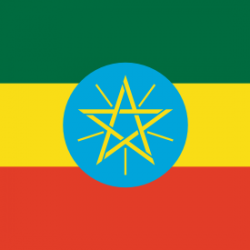
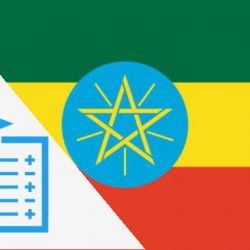
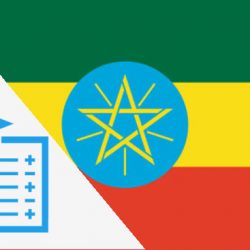
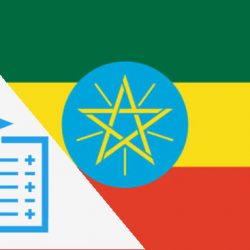
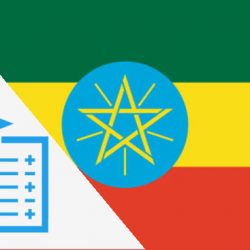
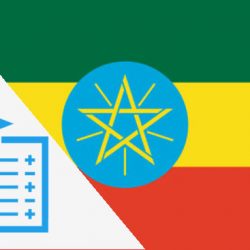
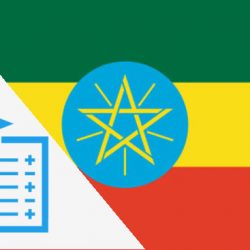
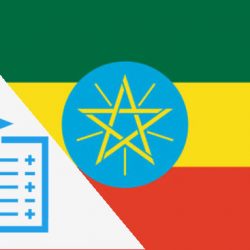
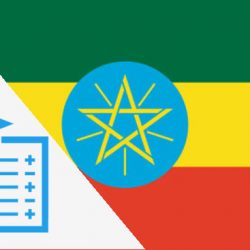
 We will not leak your personal information
We will not leak your personal information